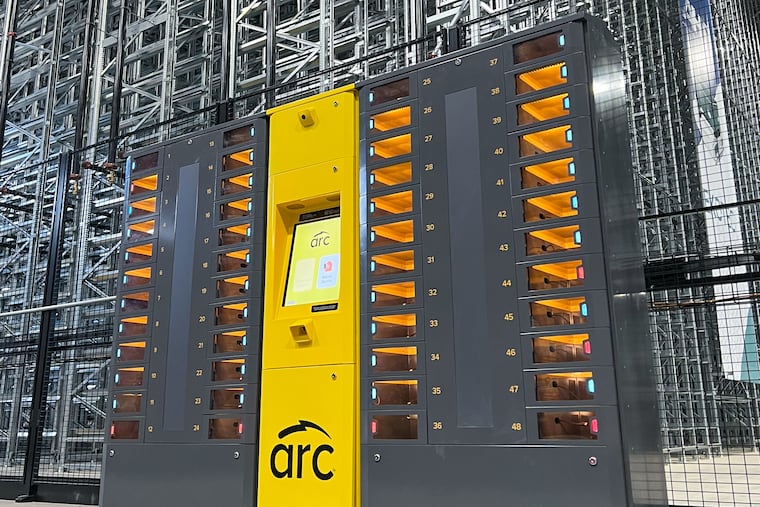Philly start-up ChargeItSpot has found a new market for phone-charging stations post-pandemic
When shoppers stopped needing phone charging stations during the pandemic, this company found a new market in warehouses dependent on other hand-held devices.

It started with the fight against “nomophobia” — the fear that your phone will run out of power.
Now it’s all about reducing the very large number of workplace communications devices that just disappear.
Doug Baldasare, a Villanova native, was at University of Pennsylvania’s Wharton School in 2011 when he started ChargeItSpot, using start-up aid provided by the program now known as Venture Lab.
The company’s goal was “to solve the problem of the dreaded dying phone battery. We would build, deploy and manage — free and secure to customers — these phone-charging lockers in retail stores, so people would spend more time shopping while they waited for their phone and spend more.”
Baldasare contracted a manufacturer to build boxes with eight secure units that would be placed in clients’ stores where shoppers could charge their phones.
By 2020, the company had 150 employees (including 30 in its offices at Center City’s Bourse building) and more than 7,000 of its eight-unit machines in service at Bloomingdale’s, Gap, UnderArmor, Nordstrom, and, for a time, Target, in 42 states and Canada.
The stores figured the extra business from shoppers awaiting a fully charged phone was well worth ChargeItSpot’s fee. By then, Baldasare and his team had raised $30 million in early-stage funding from Philadelphia-based Robin Hood Ventures, New Jersey-based Soundboard Angel Fund, and local tech millionaires.
“Philadelphia was a great place to start a business,” Baldasare said. “Access to talent. Proximity to New York and D.C. and Boston. Strong airline hub. Economical costs.”
Then the pandemic hit.
“Most of our clients shut their stores for six to 12 months,” and revenue dried up, Baldasare said. “We had to build new solutions, relative to the customer.”
One client had complained that ChargeItSpot’s “consumer-facing solution” didn’t address a larger problem “in the back of the house.” Warehouse-dependent retailers, the client said, were buying tens of thousands of phone-like communications devices from Honeywell, Zebra, and other makers. A quarter of the devices vanished in a given year — lost or stolen.
Another quarter stopped working over any given three-month period due to hardware, software, or WiFi glitches, and were piling up in bins and back shelves, untracked, until they were swept into repair bins for possible fixing.
Here was opportunity to apply what Baldasare’s team had developed on a larger scale. They reviewed how warehouse managers had been trying to cope with handheld devices.
“They were using pen and paper for checking them in and out, manually,” he said. “Managers were spending three hours a day unlocking some backroom for employees and swapping out devices.”
ChargeItSpot’s solution was to design and contract construction of a larger unit — the Asset Recharge Center or ARC — with sensors that scan a user’s badge; on recognition, pop open the door with a user’s assigned device; and automatically check it out.
“You can’t check out another unit until you return the first,” Baldasare said. “That brought [device loss] down from 25% to 1%.”
An early client was Comoto, successor to South Philly-based motorcycle-gear retailer RevZilla, now based in Cherry Hill. Soon ARCs were in use for airline baggage handlers, grocery chains, hospitals, delivery services.
In April, Sam’s Club, the Walmart discounter, ordered 1,202 of the 48-unit ARCs for its stores, doubling prior installations.
“We are excited to partner with ARC on this technology” that “ensures all (employees) can quickly and easily access a device,” Chad Donath, senior vice president of operations for Sam’s Club, said in a statement. “These lockers allow them to stop worrying about lost or damaged devices and give them more time to focus on taking care of our members,” he said, adding the first stores to use ARCs have reported “a large decrease in annual devices lost,” plus the time saving.
The company continues to sell its original product to retailers. Post-COVID, Baldasare expects rapid sales to big companies with lots of devices to track — a victory, he says, for Philadelphia innovation.